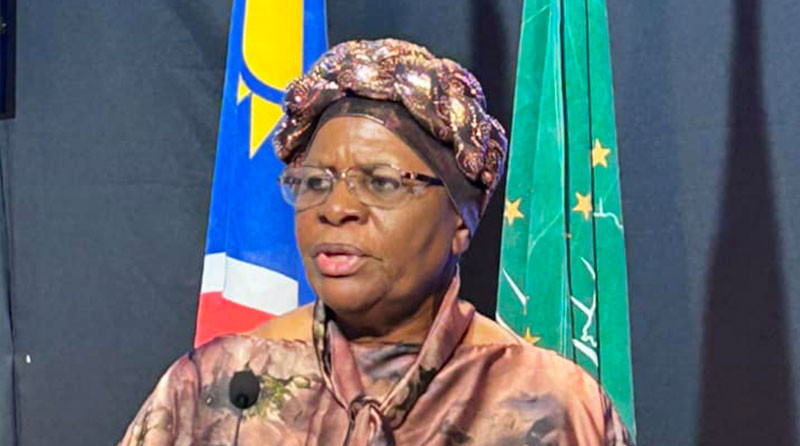
Namibians elected their next head of state, the candidate of the SWAPO party, Netumbo Nandi-Ndaitwah, the current vice president.
By Roberto Morejón
Without the need for a second round, Namibians elected their next head of state, the candidate of the SWAPO party, Netumbo Nandi-Ndaitwah, the current vice president.
The candidate of the ruling progressive SWAPO party, the South West Africa People's Organization, won 57 percent of the vote in the highly competitive November 27 election.
This is a historic result, as the president-elect is the first woman to hold the office in independent Namibia.
A prominent political activist, Nandi-Ndaitwah was promoted from foreign minister to vice-president in February 2024, when then head of state Hage Geingob died and was replaced by then deputy governor Nangolo Mbumba.
The 72-year-old socialist representative of SWAPO is the leader of an organization that has been at the forefront of Namibia's preferences since the former German colony gained independence in 1990.
Well-known and popular inside and outside the African country, she will have the support of SWAPO, which won 51 of the 96 seats in the new parliament, an absolute majority that will allow it to implement important projects.
Incorporated into Namibia's independence movement in the 1970s, Netumbo Nandi-Ndaitwah represents SWAPO's continuity in power during the 34 years since independence from apartheid South Africa.
This political grouping considers it essential to address the demands of important sectors of the population with regard to employment, poverty and income inequality.
With regard to the latter, Namibia, with the support of the International Labor Organization, has developed a policy to establish a historic national minimum wage by 2025, a decision aimed at addressing the gender wage gap.
The elected dignitary also believes it is prudent to attract more foreign investment to a country with vast resources of diamonds, uranium, oil and gas.
A balance must be struck to ensure that Namibians own these resources, said the distinguished leader, who noted that the people voted for peace and stability in the recent elections.
Promoting sustainable development and improving the economy are two of the major challenges that Namibia's president-elect will face.

